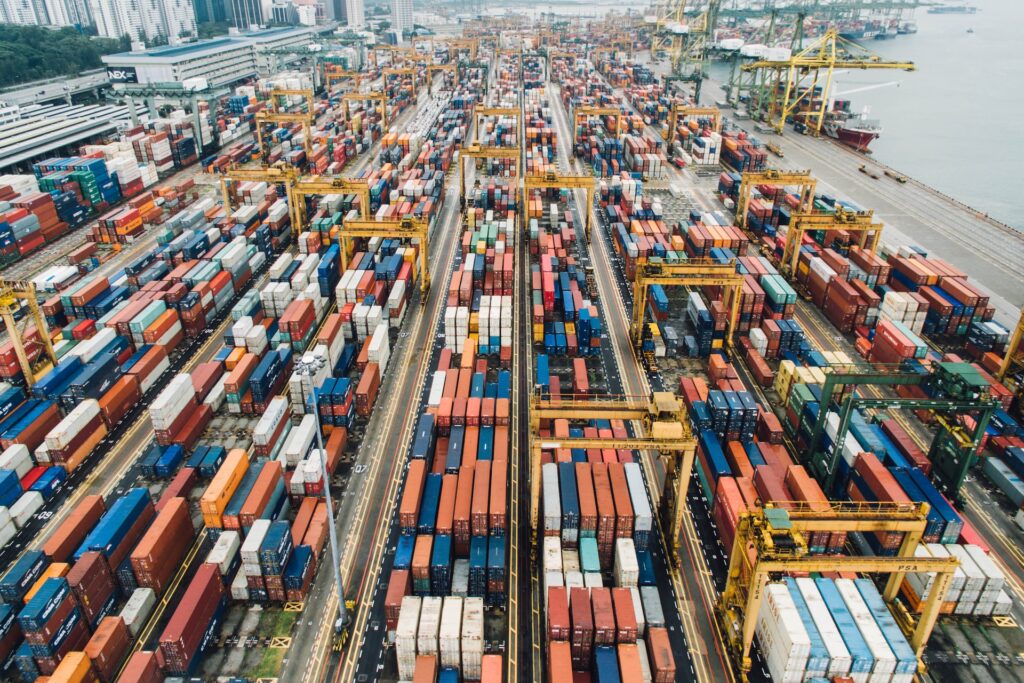When it comes to managing a company, there are a number of things that need to be taken into consideration in order to guarantee the expansion and success of the business. It is vital, in order to achieve success, to pay close attention to the particulars that are of the utmost importance, such as the manner in which the company’s financial resources are managed.
The asset owned transportation by corporations are considered to be one of its resources. Goods that can be used as collateral in the case that a credit is required, such as real estate, bonds, machinery, shares of stock, and automobiles, are examples of such products. For optimal revenue growth to be maintained over time, rigorous asset management is required. It will be possible for the corporation to achieve its objectives if its assets are operating efficiently.
The requirements for tracking your inventory and other assets can now be met with the assistance of software designed specifically for asset management. In this post, we will discuss the reasons why transportation businesses simply cannot afford to ignore asset management.
What is Asset-Based Transportation?
Asset-based transportation is a transportation service paradigm in which a corporation owns or leases transportation assets like trucks, trailers, ships, or planes and transports products for clients. In a non-asset-based transportation model, a corporation operates as a middleman to subcontract transportation services for its customers.
Asset-based transportation companies can operate locally, regionally, nationally, or worldwide, specializing in trucking, shipping, or air transport. As they own or lease their cars, these companies can schedule, maintain, and route them to deliver products and people on time. Asset-based transportation offers greater control, flexibility, and cost-effectiveness. To buy or lease transportation assets, the corporation must invest heavily and manage and maintain them.
What is Asset Management in Logistics?
Logistics asset management is the act of overseeing and maximizing the usage of logistical assets including trucks, storage facilities, machines, and stock to guarantee smooth supply chain operations. When done properly, logistics asset management can cut costs and boost efficiency of the business. It also serves better customers by keeping tabs on where things are and how they’re doing, what needs fixing, what’s in stock, and how often. No matter what you are transporting rather than grain transportation or any other type of goods , you can keep track of them with asset management.
Asset tracking systems, predictive maintenance software, and inventory management software are all technological advancements that contribute to efficient asset management in the transportation industry. Logistics asset management helps businesses save money, boost productivity, and give customers a better experience by maximizing the use of their assets and limiting the amount of time those assets are inactive.
Reasons Why Asset Management is Essential part of Transportation Business
The transportation industry relies heavily on effective asset management for a variety of reasons, including the following:
1. Reduction in Expenses
No matter if you are looking for shipping across Canada or any other place, asset management won’t affect your purse. Effective asset management can assist transportation companies reduce costs associated with equipment acquisition, maintenance, and repair, which can help them save money. If businesses monitor the usage of their assets and the maintenance plans for those assets, they may increase the lifespan of their assets, prevent expensive failures and downtime, and make better-informed decisions about when to retire and replace older equipment.
2. Security Enhancement
When assets are properly maintained, the likelihood that they may fail is reduced, which in turn lowers the risk of accidents and injuries. The tracking of maintenance schedules, the identification of potential safety issues, and the implementation of preventative measures are all things that can be aided by asset management.
3. Acceptance of Regulations
Companies involved in transportation are required to adhere to a wide number of rules including safety, emissions, and other environmental considerations. Companies can avoid incurring fines and other penalties by ensuring compliance with these requirements through the use of effective asset management practices.
4. An Improvement in Customer Service
When it comes to providing a service that is of a high quality to their clients, transportation businesses rely heavily on their assets. Businesses are able to enhance their on-time performance, decrease their downtime, and deliver more dependable service when they efficiently manage their assets.
5. Enhancements in Asset Utilization
Good asset management can assist transportation firms in maximizing the use of their assets and ensuring that each asset is utilized to its fullest capacity. This can help these organizations achieve their business goals and become more profitable. Because of this, businesses may be able to reduce the amount of new equipment they require and improve their overall efficiency.
6. Control and Reliability
Working with an asset-based carrier gives you the potential to have a greater say in how the shipping process is carried out. Because they own all of their cars, hire all of their drivers, and take care of any necessary maintenance themselves, asset-based carriers are able to strictly adhere to their delivery schedules while also maintaining high levels of customer satisfaction.
7. Stable Prices
It is possible for asset-based carriers to keep their prices stable without having to rely on the services of third-party contractors because these carriers own and control their own equipment. As a direct consequence of this, asset-based carriers are in a position to provide stable pricing.
8. Flexibility in Terms of capacity
Asset-based carriers are more nimble and responsive to swings in the market as well as the requirements of transportation. They can help you move your goods quickly and efficiently by offering additional capacity at times of high demand or when there is already a lot of demand.
9. Optimizing Asset Utilization
Trucks, trains, ships, and planes are all common fixtures in the fleets of transportation businesses. Proper asset management keeps tabs on where all of these vehicles are kept, how they’re functioning, and who has access to them. Informed decisions on which trucks to send on which routes and how to best plan maintenance and peaks in demand may then be made, allowing transportation businesses to maximize utilization and reduce downtime.
10. Maintained Assets
There will be a higher rate of return on investment if the assets perform well. Because of the lower chance of device or asset failure and the corresponding decrease in maintenance costs. In addition, deadlines are met reliably. The ability to predict when maintenance is required is a key benefit of asset management. Asset management can help you keep everything in order.
In addition, it records the particulars of each asset, such as when it was bought, what it cost, how long it was under warranty, whether or not it was ever repaired, how long it took to fix, etc. Organizations in the logistics industry rely heavily on a variety of large pieces of machinery; failure to keep this machinery in good working order can have disastrous consequences.
The Bottom Line
Effective asset management is critical for maintaining a reliable supply chain. To ensure that customers receive their orders promptly, it is essential to keep detailed records of all work performed, machines used, and communications with suppliers. To maintain steady revenue, your company relies on satisfied customers. One tiny mistake in the logistics industry can cause a production delay. Therefore, logistic asset management software can help an organization run more efficiently and give you more control over your assets and inventories.



